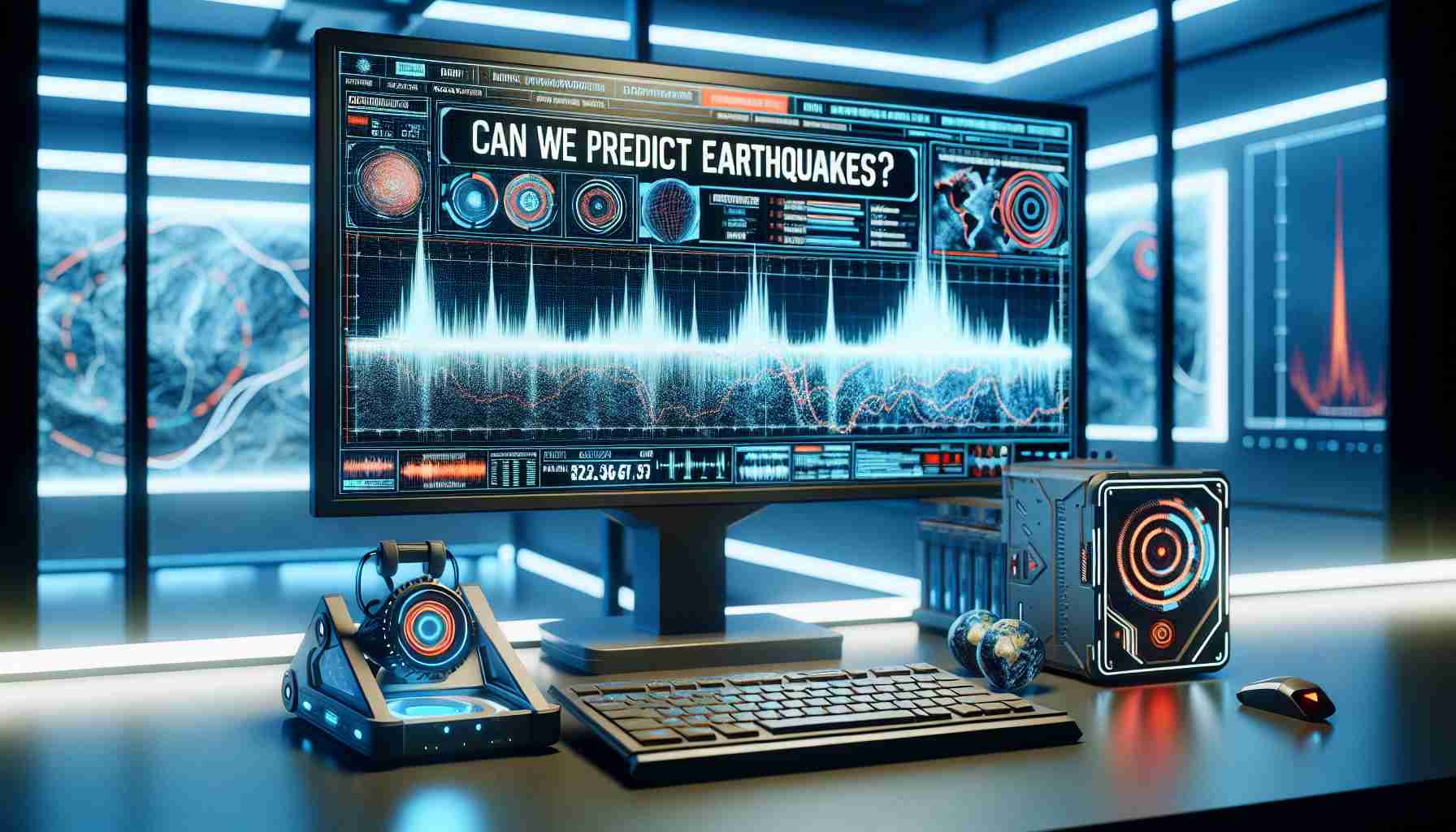In the unending quest to forecast earthquakes, technology is standing at the forefront of innovation, offering promising avenues toward prediction possibilities. While seismologists have long struggled with the complex nature of earthquake prediction, revolutionary systems leveraging artificial intelligence (AI) and machine learning are making waves in the field.
AI and Machine Learning Transformations: Recent developments integrate AI with dense networks of sensors, aiming to recognize subtle patterns preceding an earthquake. These models, trained on vast datasets of seismic activity, could potentially identify precursors to seismic events that were previously undetected by conventional methods.
Innovative Early Warning Systems: Countries like Japan and Mexico have pioneered earthquake early warning systems that prove invaluable for saving lives. These systems, by detecting the initial, less destructive seismic waves, provide crucial seconds to minutes for people to prepare for more powerful subsequent shaking.
Quantum Technology Enters the Scene: A new player, quantum technology, is emerging with groundbreaking potential. Quantum sensors, known for their hyper-sensitivity to gravitational field changes, could provide insights into tectonic activities, helping researchers understand and potentially anticipate shifts with unprecedented accuracy.
Challenges Remain: Despite advancements, the inherently chaotic nature of earthquakes indicates complete predictability may always elude us. However, these technological strides represent a compelling narrative in disaster preparation and risk mitigation. As these technologies evolve, they are not only expected to enhance prediction capabilities but also reshape how we respond to one of nature’s most formidable forces.
Unveiling the Future: Can AI Forecast Earthquakes?
As technology advances, so do our capabilities to predict natural disasters. Earthquake prediction, a notoriously complex challenge, is seeing newfound hope through advancements in artificial intelligence (AI) and other cutting-edge technologies. This article explores the latest innovations in earthquake prediction and early warning systems, aiming to enhance safety and preparedness.
How AI and Machine Learning Are Changing Earthquake Prediction
Recent breakthroughs in AI and machine learning are reshaping the landscape of earthquake prediction. By integrating AI with dense sensor networks, researchers are working to recognize subtle seismic patterns that precede earthquakes. These machine learning models analyze vast datasets of seismic activity, uncovering precursors that traditional methods may overlook. The potential of AI to identify these early signs offers hope for more accurate predictions in the future.
Quantum Technology: The Next Frontier
Quantum technology is emerging as a disruptive force in earthquake research. Quantum sensors, renowned for their exceptional sensitivity to changes in gravitational fields, could revolutionize our understanding of tectonic activities. By providing unprecedented accuracy in detecting shifts, these sensors may offer valuable insights into accurately forecasting earthquakes, pushing the boundaries of current capabilities.
Pros and Cons of Innovative Early Warning Systems
Countries like Japan and Mexico are at the forefront of deploying state-of-the-art earthquake early warning systems. These systems detect the initial, less damaging seismic waves, giving people precious seconds to prepare for stronger tremors. While these systems have proven life-saving, challenges such as high costs and regional implementation disparities persist. Despite these hurdles, their potential in reducing harm and facilitating timely evacuations remains invaluable.
Challenges and Limitations
While technological advancements in AI and quantum technology offer promising possibilities, the chaotic nature of earthquakes suggests that total predictability may remain elusive. The primary challenge lies in the inherent unpredictability of seismic events. However, the integration of these technologies highlights an evolving narrative in disaster preparedness and risk mitigation, paving the way for innovations that might refine and improve existing methods.
Looking Ahead: The Future of Earthquake Prediction
As these technologies continue to develop, they are expected to significantly bolster our predictive capabilities and influence how society responds to earthquakes, one of nature’s most formidable forces. Ongoing research aims to harness these advancements for safer, more resilient communities. The evolution of earthquake prediction serves as a reminder of technology’s potential to transform our understanding and management of natural disasters.
For more information on earthquake science and technology innovations, visit the United States Geological Survey at usgs.gov or the National Earthquake Information Center at ncei.noaa.gov.







